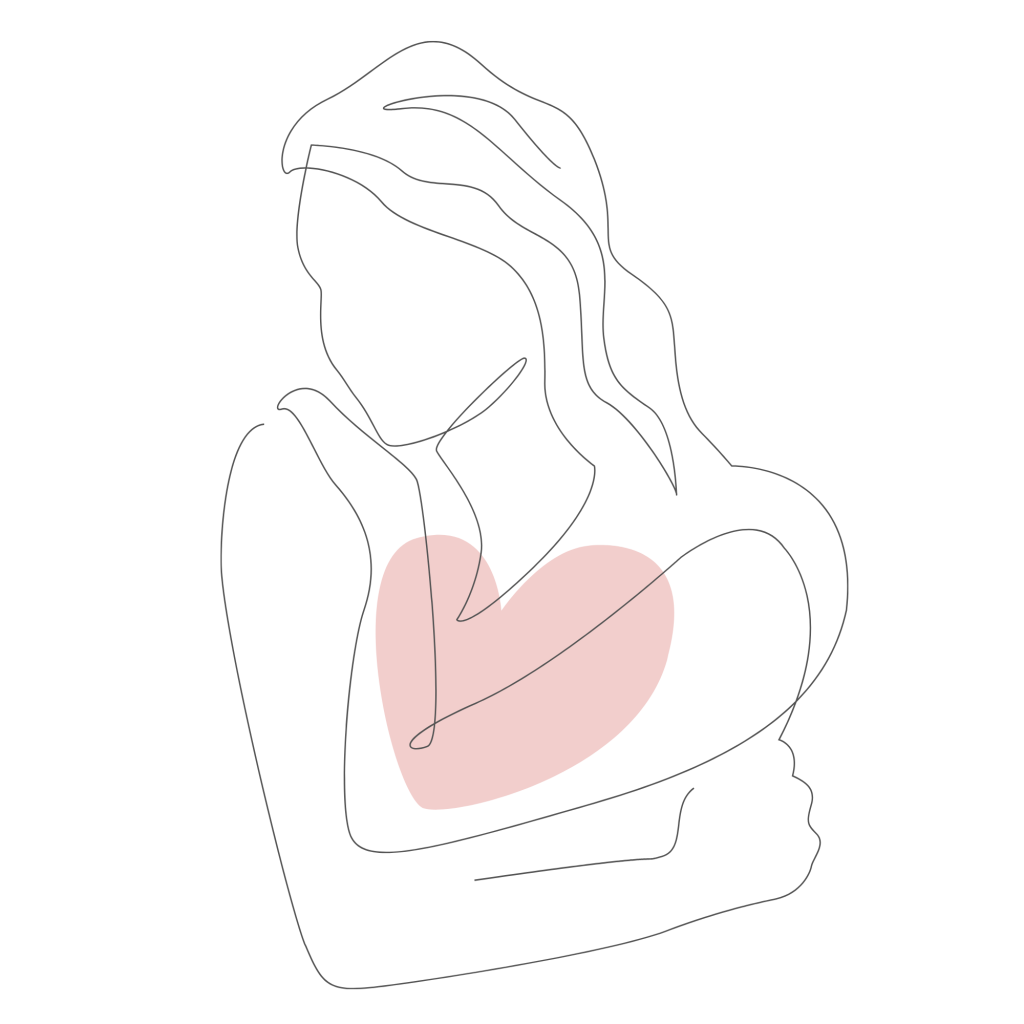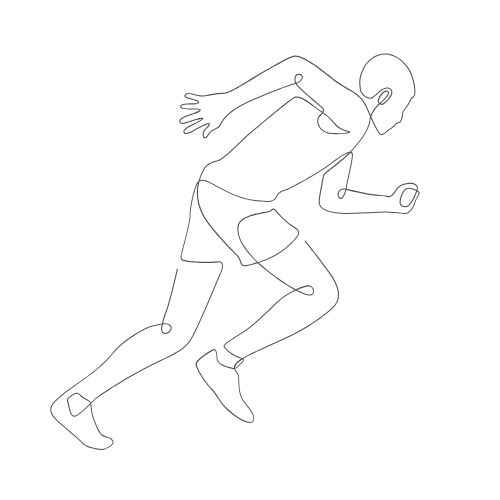Taking care of you. 5 essential self care tips to boost your wellbeing.
This is the perfect time to focus on your mental and physical health.
We can help you do that.
We believe self-care isn’t a luxury – it’s a necessity. So many elements for your health are interconnected, so what might seem like a small disruption can have a big impact. It’s something we see all too regularly here at The Lomond Clinic. But the good news is that there are some easy things you can do to help you feel your best, both physically and mentally.
Here are five tips from our team to help you prioritise your wellbeing:


1. Start the day as you mean to go on.
Instead of falling out of bed and grabbing a coffee as you rush out the door, start your day well. Find a simple routine that works for you – even just one easy change can have a hugely positive impact on how you feel:
- Try to get up at the same time every day, even the weekends. Tempting as it is to sleep in at the weekend (or hit the snooze button), try not to. Your body likes routine.
- Get up 10 minutes earlier for some mindful deep breathing or meditation. Or even just 10 minutes’ peace with a cup of tea. It’s an easy but calm and reflective way to start your day.
- Don’t skip breakfast! Have something nutritious and sustaining to support your energy levels until lunch.
- Stretch. Morning is a great time for some gentle stretching or yoga, to wake up your body and enhance your mobility – something we all need to be doing more of!
- Get some sunlight. It might be hard to find in Helensburgh, but take your coffee outside or even just eat your breakfast beside the window. It’s also recommended that we take Vitamin D supplements during the winter, so look into that if you don’t already take them.
Whatever you do, stick with it. Our mental health team recommend consistency (rather than perfection!) as key to building good habits. If you’re finding it challenging to establish healthy routines, we can help you develop with exercise and nutritional strategies that work for you – find out more
2. Get moving.
There’s a strong correlation between physical activity and positive mood. But when it’s cold and dark outside, the temptation is to cosy up in front of the TV instead. Physical activity doesn’t have to mean intense workouts, though. The key is consistency (that word again!) and our physiotherapy team emphasises that the way to stick to it is to find movement that you actually enjoy. So that could be:
- Taking the dog for a walk
- Dancing
- Swimming
- Trying a new fitness class
- Setting a fitness challenge, like a 10K or half marathon
The point is to move your body in a way that feels good, which will give you the benefit of exercise as well as releasing endorphins and reducing stress. It really is a win-win. If you need motivation, team up with a friend to go to the gym or arrange to go for a walk with a workmate at lunchtime – that way you can catch up and exercise at the same time (and it’s less easy to cancel!).
If you’ve been a bit overambitious and are feeling any twinges, get advice sooner rather than later. It’s better to be seen and treated while it’s still a niggle rather than waiting until it’s a bigger problem. We can also vouch for the benefits of a good sports massage for aching muscles! Our physiotherapy team can also create a personalized movement plan that works for your body and lifestyle – see more about our physio and sport rehab here.


3. Prioritise quality sleep and rest.
We all know how rubbish we feel after a bad night’s sleep – and consistently poor sleep can have knock on effects on everything from mental wellbeing to weight loss and stress management. Even your skin and complexion.
Rest is vital, and winter nights are a perfect opportunity to reset your sleep patterns and practise self care. We suggest you:
- Maintain a consistent sleep schedule. If it helps, set a reminder on your watch or phone so you can establish good habits. Sometimes we all need a gentle reminder to go to bed…
- Create a calming bedtime routine. Avoid food and drink too close to bedtime, maybe have a bath. If you’ve got kids you’ll know the importance of a good bedtime routine – it works for adults, too.
- Consider writing a journal. Journalling’s not everyone’s thing, but it has huge benefits for mental wellbeing, reminding you of the good things that have happened that day as well as getting any potentially disruptive thoughts out of your head and onto the page before bed. Even a simple ‘to do’ list for the next day can stop you mulling things over when you should be sleeping.
- Limit screen time before bed. We all know how it can disrupt sleep and yet we all do it…
- Make your bedroom a comfortable, peaceful space. If it’s not already, it needs to be a warm and cosy haven to promote sleep, not a space that reminds you of chores you need to do.
Good sleep is fundamental to both mental and physical recovery – you just can’t be your best if you’re not well-rested. Our holistic treatments, including reflexology and massage, are designed to promote deep relaxation and better sleep quality. See more about our holistic treatments
4. Nourish yourself inside and out.
Winter is prime cold and flu season, with all sorts of bugs doing the rounds. So it makes sense to take care of your body inside and out. Think about it less as ‘pampering’, more as ‘essential maintenance’.
- Stay hydrated with plenty of water. Try to limit caffeine and fizzy drinks if you can – add flavour to your water if you need encouragement to drink it!
- Fuel your body with seasonal, nutrient-rich foods that support energy and immunity.
- Take care of your skin. Winter can be hard on your face and hands. Soothe and protect your skin from harsh, drying conditions with nourishing moisturisers and gentle treatments.
- Have a treatment. Holistic therapies like massage, aromatherapy and dao yin tao are physically and emotionally relaxing, and promote overall wellness, especially when you use them regularly.
Self-care isn’t selfish, it’s essential – and something we all need to do more of. Complement your self-care routine with personalised nutritional advice and targeted supplements for optimal wellbeing, or a cosmeceutical facial to nourish winter-stressed skin. See more about our nurturing treatments


5. Practice emotional self-awareness.
Mental health isn’t just about managing challenges—it’s about understanding yourself better. When we’re busy with work or taking care of others, self care is an easy thing to miss out. But emotional wellbeing affects every aspect of our lives, from relationships to physical health. Our mental health team recommends you:
- Check in with yourself daily. Take 10 minutes, maybe those 10 minutes in the morning, to think about how you’re feeling. What’s working well? What needs attention? You might be surprised at what you discover when you simply pause and listen to yourself.
- Identify and acknowledge your emotions – even the uncomfortable ones. “I notice I’m feeling anxious” is more helpful than “I shouldn’t feel anxious.”
- Set (and maintain) healthy boundaries. It’s okay to say no to extra commitments when you’re feeling overwhelmed. It’s fine (in fact, it’s more than fine, it’s important) to take time for yourself.
- Create emotional safety nets. Find some ways of coping that work for you – it might be journalling, or talking to a friend, or counselling sessions.
- Listen to your body. Emotional stress often shows up as physical symptoms—tension headaches, tight shoulders, upset stomach. Learning to recognize these early warning signs can help you address stress before it becomes overwhelming.
Our emotional health is just as important as our physical health, and looking for help or support isn’t a sign of weakness. Please do get help if you need it. Our counselling team provides a safe space to explore your emotions and develop coping strategies – find out more about our mental health services
At The Lomond Clinic, we look at the bigger picture.
We take a holistic approach to health and wellbeing, because we feel that very few things work in isolation. So we’ve intentionally designed our clinic to provide a multidisciplinary package of complementary services and therapies that work together to promote full body health and wellbeing. But if you just want to come in for a facial, that’s OK too.
Here’s some of what we do:
- Hypnotherapy for stress management
- Counselling
- Cognitive Behavioural Therapy (CBT)
- Massage, reflexology and other holistic treatments that promote relaxation
- Physiotherapy for physical alignment and pain management
- Nutritional advice and health supplements
- Beauty treatments including cosmeceutical facials
- Skincare products
Ready to prioritize your wellbeing? Book a consultation with our team to discover which of our services best supports your self-care journey. Whether you’re looking for physical, emotional or holistic support, we’re here to help you feel your best.

Join our mailing list
We are a well-established multi-disciplinary health clinic on the seafront of Helensburgh. Join our mailing list to get all the latest news and updates directly to your inbox!
